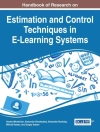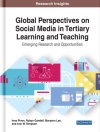A how-to manual for achieving excellence despite budget cuts
How do you stay focused on increasing student learning when budget cuts threaten everything you are striving for? This book offers a comprehensive framework to enhance student achievement in good times and in bad. School reform expert Allan R. Odden outlines a school improvement action plan focused sharply on student learning and then shows how to target resources to implement each strategy in that plan. More than just a ‘theory’ book, this text describes concrete, specific actions that can be taken immediately. Key strategies include
- Using data to support boosting student performance
- Focusing on effective instruction
- Setting goals to drive resource allocation priorities
- Establishing priorities for situations that require budget cuts
- Hiring top teachers and providing ongoing professional development
- Providing needed technology resources
Educators will find a wide range of real-life examples of schools and districts that have implemented these strategies and significantly improved student learning. Also included is research-based guidance for optimizing teacher and principal talent, teacher recruiting and hiring, online learning, and more. This book successfully communicates many years of work and offers well- grounded advice that will help educators move from financial frustration to effective action.
विषयसूची
List of Tables
Preface
Acknowledgments
About the Author
1. A Plan of Action: Turning Around Low-Performing and Enhancing High-Performing Schools
A Strategic Approach to Using the Education Dollar
A Plan of Action for Dramatically Improving Student Performance
Summary
2. The Resource Needs of the Plan of Action
Details of the Resource Needs of the Plan of Action
Example of a High-Spending District That Could Cut Spending
Linking Table 2.1 to School Finance Adequacy
Summary
3. Targeting Resources to Student Learning When Budgets Are Tight
Understand and Resist the Cost Increase Pressures on Schools
An Example of Strategic Resource Reallocation for a Midwestern Middle School
More Detail on Strategic Budgeting
Summary
4. Recruiting, Developing, and Compensating Top Educator Talent: Local Practices and Supporting State Policies
Acquiring, Developing, and Retaining Teacher Talent
Teacher Salary Structures
Educator Pensions
Summary
5. Computers and Technology in Education: Costs and Online Options
Costs of Technology Software and Hardware
Using Information Technologies for Instruction
Summary
6. When Budget Cuts Are Necessary
Cost Pressures, Goals, and Principles to Guide Strategic Budgeting
Ensuring a Solid Talent Foundation in Tight Fiscal Times
Engaging in Strategic Budgeting
Summary
References
Index
लेखक के बारे में
Allan Odden is Professor Emeritus of Educational Leadership and Policy Analysis at the University of Wisconsin-Madison; he also is Co-Director of the Strategic Management of Human Capital (SMHC) in public education and Co-Director of the Consortium for Policy Research in Education (CPRE). CPRE is a consortium of the University of Wisconsin-Madison, Pennsylvania, Harvard, Michigan, Northwestern, Teachers College-Columbia University, and Stanford Universities. He is an international expert on education finance, effective resource allocation and use, resource reallocation, the strategic management of human capital in education, teacher compensation, school-based management, and educational policy development and implementation. He consults regularly with states and districts on these issues.His most recent books include School Finance: A Policy Perspective (Mc Graw Hill, 2008, 4th edition), with Lawrence O. Picus and How to Create World Class Teacher Compensation (Freeload Press, 2007) with Marc Wallace. Other books include Paying Teachers for What They Know and Do: New and Smarter Compensation Strategies to Improve Schools (Corwin Press, 1997, 2nd Edition, 2002) with Carolyn Kelley; Reallocating Resources: How to Boost Student Achievement Without Spending More (Corwin, 2001) with Sarah Archibald; School Finance: A Policy Perspective (Mc Graw Hill, 1992, 2nd Edition, 2000, 3rd Edition 2004) co-authored with Lawrence Picus; School-Based Finance (Corwin Press, 1999), edited with Margaret Goertz; Financing Schools for High Performance: Strategies for Improving the Use of Educational Resources (Jossey Bass, 1998) with Carolyn Busch; Educational Leadership for America’s Schools (Mc Graw Hill, 1995); Rethinking School Finance: An Agenda for the 1990s (Jossey-Bass, 1992); Education Policy Implementation (State University of New York Press, 1991); and School Finance and School Improvement: Linkages for the 1980s (Ballinger, 1983).He was a mathematics teacher and curriculum developer in New York City’s East Harlem for five years. He received his Ph D and MA degrees from Columbia University, a Masters of Divinity from the Union Theological Seminary and his BS in aerospace engineering from Brown University.












